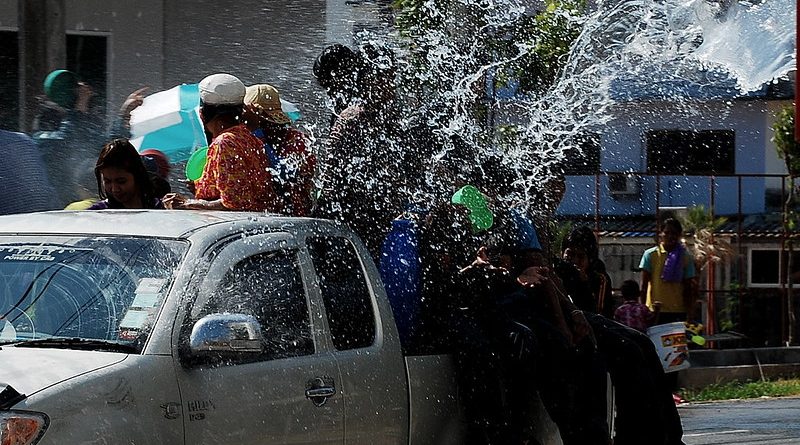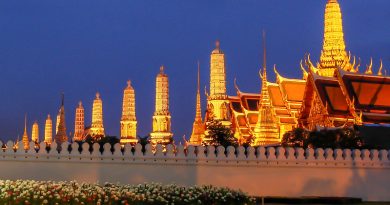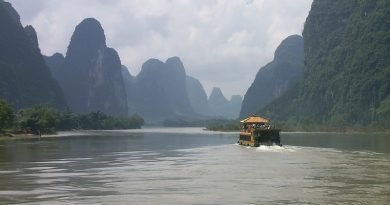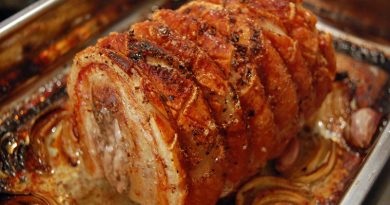Glorious Water Fight: Songkran Festival
Festival Essentials
Where: Thailand, Laos, Burma, South West China – at its most fervent in Chiang Mai
When: Annually, mid April
What Happens: Exhuberant water fight and Buddhist ritual of cleansing
Remember to Bring: A big towel
As featured in the book Great Festival of the World
Where’s the Party?
Songkran, the Thervada Buddhist New Year celebration is held in cities, towns and villages all over Northern Thailand, Laos, Burma and even South West China. However, arguably the largest and most exuberant celebration is held in the old Capital of the Lanna Kingdom, Chiang Mai in the North of Thailand.
Dates for the Diary
Songkran happens in mid-April, usually between the 12 and 15 April, but expect the water fights to start a couple of days earlier.
What It’s All About?
Although for most visitors, Songkran is just a big water fight, there are a number of private and public events that devout Buddhists will adhere to.
The festival officially happens over four days. On the first day, Wan Sangkhan Lohng, houses are cleaned and there is a procession of Buddha images and floats – all of which get drenched by the spectators.
The second day, Wan Nao, is when special food is cooked and people collect sand from the rivers to make sand chedis (Buddhist towers) in the temple courtyards.
The third day, Wan Payawan, is the first day of the new year and when the water fights traditionally started. People get up early to offer the food cooked the previous day and new robes to the monks.
On the last day of the festival, Wan Park Bpee, people are supposed to visit and pay respect to ancestors and the elderly, in part by pouring scented water over their hands.
The water fights generally last for a whole week, from a few days before the start of Songkran until a few days afterwards.
Be Prepared
Visitors from most countries can stay in Thailand for 30 days without a visa, but you should contact the Embassy or Consulate in your home country for information before you leave.
During Songkran transport can get very booked up as everyone heads back to their families for the holiday period. Book well in advance if you want to fly or take the train.
Many shops and business close for Songkran, and it can be a frustrating time if you are trying to get anything done – from a massage course to cashing travellers cheques.
Getting There
It is possible to fly directly to Chiang Mai from certain Southeast Asian cities – including Kunmingin China. However, most people arrive in Thailand via the capital, Bangkok.
From Bangkok, there is a comprehensive schedule of domestic flights to Chiang Mai which take around an hour, or you can take a night train or one of the many night busses that ply the route. The night train has sleepers, but gets booked out very quickly. There are public buses, but most travellers end up on one of the Khao San Road specials – a cheap, no-frills service that will get you to Chiang Mai after an uncomfortable night for a few dollars. One problem with this is that some of the busses stop at a car park outside of Chiang Mai where you can get hassled to book into a certain guesthouse and then take a hilltribe trek with them. Use your discretion.
Where to Stay
Accommodation is not normally a problem, as the city is well supplied with guesthouses and this is the low season for tourists. It is worth arriving a couple of days early though, as the more popular places can fill up, and the last thing that you want to do is have your backpack completely soaked as you plod the streets looking for a bed.
Once You’re There
Songkran can sometimes get out of hand, with too much drinking and a number of accidents caused by over-exuberant behaviour. The 2001 Songkran in Thailand reputedly saw some 300 deaths, but as long as you avoid riding in a vehicle with drunk drivers or riding a moped during Songkran then you should be relatively safe.
If you are in Chiang Mai, you won’t be able to avoid Songkran, so it is best to go with it and get ‘tooled-up’ as soon as possible. You should take care not to let any of the water get into your mouth as much of it comes from the moat round the old town. One glance at that should convince you, quite literally, to keep your mouth shut. The waterfights are supposed to end at night, and so spraying people as they walk round in their evening best clothes won’t win you many friends.
Thailand is a predominantly Buddhist country and people tend to be generally relaxed and laid back. However, this does mean that if you unwittingly cause any offence, they are unlikely to point this out to you, they will just be offended.
To avoid this you should follow the following simple rule: Always show respect to any monks, Buddhist images and the Thai Royal Family. The King is very popular and respected in Thailand. Never make any disparaging comments about him and always stand if you hear the Thai national anthem.
Never point your feet at any Buddha images, or pose for photographs in front of them. Women should never touch monks or pass anything directly to them.
Thai’s believe that the head is sacred and the feet are unclean. Never touch anyone on their heads (not even children) and never point at anything with your feet.
On the subject of monks, it is worth pointing out that being a monk is not necessarily a lifetimes devotion. Most Thai men will be a monk (or rather a novice) for at least some time in their lives and some criminals have even been sentenced to a period in a wat (temple) for an attempt at rehabilitation. Whilst you should still show them respect, women especially should be aware that there have been isolated incidents of such novices attacking lone females and should take normal precautions.
Local Attractions
Chiang Mai is the second city in Thailand but is far more relaxed than Bangkok. There are a number of things to see, including Wat Doi Suthep, a wat, or temple, on the top of a hill outside of town.
Many companies run tours and treks to see nearby hilltribe villages, but you might find it better to wait until you are in Chiang Rai further north to organise something.
There are a number of courses that you can do in Chiang Mai, including Thai massage and Thai Cookery. These range from half a day to a number of weeks.
Similar Events
Songkran is celebrated in towns and villages all over South East Asia, including Bangkok and Burma, Laos and even as far as South West China. The smaller the village, the more traditional the festival will be. The one thing that will characterise all of these festival though is exuberance and a terrific water fight.
More Information
The Tourist Authority of Thailand has an office at:
105/1 Thanon Chiang Mai-Lamphun
Tel: + 66 53 235334
Chiang Mai News
A website with information about all aspects of Chiang Mai, including Songkran.
Thailand.com
Travel information about the whole country




